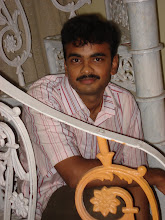The following article appeared in "The Speaking Tree" column in Times of India on 20th Aug 2009. The article is written by B Jivan Yati Maharaj.
French pilot Ronald Nikson was flying his plane and he and his four colleagues were trying to locate the defence facilities of the German army during World War I. They entered German air space and were hiding their plane behind clouds. Nikson needed to clearly view the defence sites, so he took the risk of lowering his plane. His plane was hit. The German army was firing at them and the plane was in flames.
Nikson later wrote of the incident: ‘‘I was a non-believer in God. Observing that my burning plane was losing height rapidly and would soon crash, with no chance of survival, i murmured, ‘If there is a God, save me.’ I went blank after that. On regaining consciousness, i was told that i remained unconscious for almost 2 months. When i inquired about my colleagues, i was told that somehow the burning plane re-entered French border territory and fell there. Nothing remained, none of the others survived – except the pilot, yours truly.
‘‘After getting discharged i began going to church and inquiring about God from various priests. If God exists then i should find Him and talk to Him. I was not satisfied with the answers i got and eventually began reading many holy books. My desire to meet God increased day by day. After all He was my saviour. I was advised to visit India to learn further about God. I was informed that sages of ancient India had researched deeply into this topic. I resigned from the Royal Air Force, and came to India in search of God.’’
Nikson came to India and took up a position as professor in the English department at Lucknow University. Krishna says in the Gita that He helps those who seek Him out with sincerity. Nikson familiarised himself with Indian scriptures including the Gita, the Upanishads, the Vedas and the Srimad Bhagavatam. He took the name of Sri Krishna Prema. He established a centre at Mirtola in UP, now known as ‘’Uttar Vrindavan’. It is said that he realised the Supreme Lord here and used to talk to the Lord. .
Once Srila Madhav Maharaj met the Nobel prize-winning scientist C V Raman. During the course of a discussion, the scientist said to Maharaj that if he could show Krishna to him, then he would concur with the Maharaj’s words. They were in a laboratory in Kolkata city.
The northern side of the laboratory had a wall without windows. Maharaj asked Raman, ‘‘I am unable to see anything beyond that wall. If i say, ‘there is nothing outside this wall’, will it be correct?’’ Raman replied, ‘‘I can see through my instruments.’’ Maharaj said, ‘‘There is a limit to your instruments. You can see only as far as your instruments allow you to see.’’ Raman said, ‘‘I will not give any attention to anything that is not within my sense-experience.’’ Maharaj then said, ‘‘If your students say to you, they will study your scientific findings only if you make them realise the results first, what would be your reaction?’’
Raman replied that the students would have to go through the learning process first. ‘‘If this is true for you and your scientific knowledge, can not our seers say the same thing? Follow their process and see whether you experience God’s existence or not.’’
The writer is general secretary, All India Sree Chaitanya Gaudiya Math.

